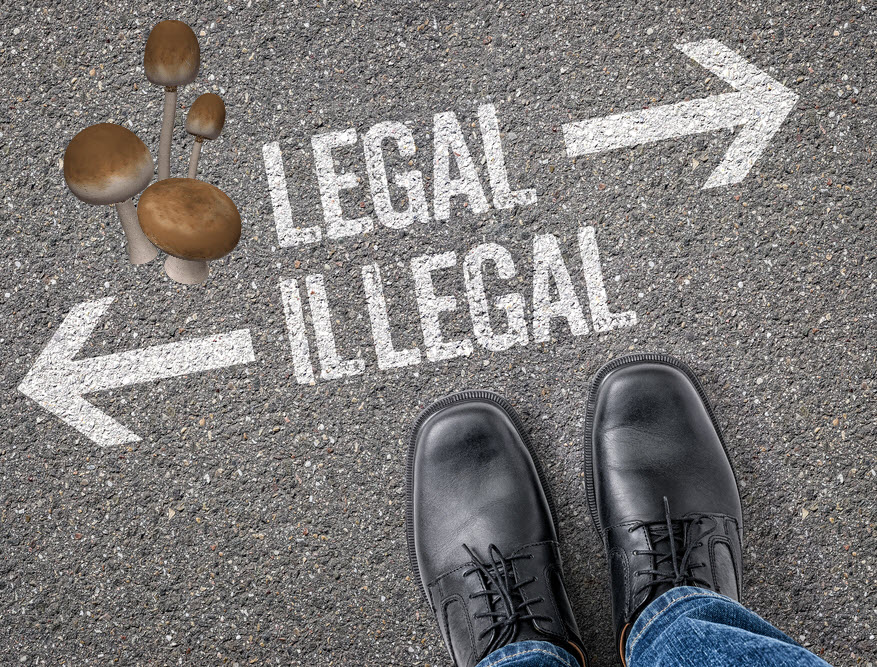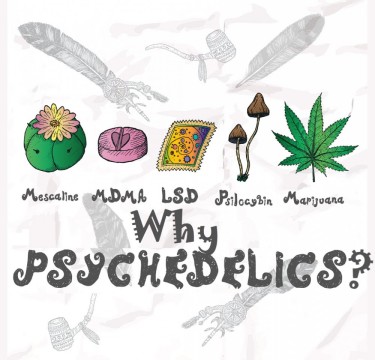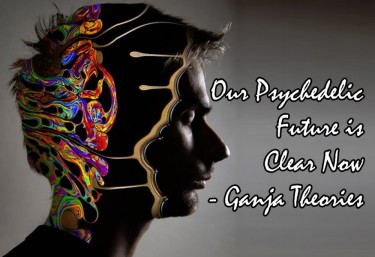
Where in the world are psychedelics legal right now?
Psychedelics are more than just a popular buzzword these days.
Also known as hallucinogens, these drug groups are psychoactive substances that produce numerous mood, cognitive, and cognitive changes in humans when consumed. Many popular psychedelics are derived from plants such as magic mushrooms, which are the most popular. Other well-known herbal psychedelics include peyote, DMT, ibogaine, and the chemicals LSD and MDMA.
People take psychedelics for a variety of reasons. Although they put you in altered states of consciousness, many psychedelics also have powerful healing properties for mental and physical health. However, they can be difficult to find.
Some countries and cities around the world have eliminated criminal penalties associated with certain psychedelics, although they do not apply without certain legal limitations.
Here is a list of where psychedelics are reasonably legal around the world at the time of writing.
United States
In general, all of these psychedelic substances are still considered Schedule 1 substances in the United States. It is still illegal to possess, use, manufacture, and sell these drugs without government approval.
However, that hasn’t stopped some jurisdictions in the United States from passing their own laws allowing the possession and consumption of small amounts of psychedelics. Back in November 2020, Oregon made waves by becoming the first state to eliminate criminal sanctions for illegal drugs, including psychedelic substances, as well as oxycodone, heroin, cocaine, and methamphetamine. Anyone caught with a small amount of these drugs is considered a Class E violation and no longer a misdemeanor.
Meanwhile, in California, Oakland and Santa Cruz passed resolutions barring city police from imposing criminal sanctions on fungi and entheogenic plants. The use and possession of psychedelic plants, including psilocybin mushrooms, mescaline, and iboga, are the lowest priority of law enforcement.
Mexico
Consumption and possession of magic mushrooms is still illegal in Mexico, and has been since 1984. But indigenous tribes are allowed to use psychedelics like peyote and magic mushrooms.
Since Mexican police never enforce the law against these tribes, many people flock to Mexico to experience a psychedelic ceremony with them. Since peyote also grows in the Mexican desert, nothing stops visitors from harvesting and ingesting it themselves, although these drugs are always best taken under the supervision of experts or shamans.
Curious travelers can find peyote, which is widely grown in desert regions like Nuevo Leon, Chihuahua, Tamaulipas, and Coahuila. In some cases, they can even sneak as far as Texas.
The Netherlands
The Netherlands is home to Amsterdam, a city that has a liberal reputation around the world for making it easy—even for travelers—to access cannabis and magic mushrooms over the last few decades.
But things have changed in recent years, sparked by tourist deaths from drug use.
“Smart shops” and “coffee shops” across the city are already selling a variety of psychedelics such as magic mushrooms, DMT, iboga, and more. However, pure extracts such as DMT, mescaline, ayahuasca, and psilocin are still illegal, even if they are to be used for religious purposes. There are numerous retreat centers across the country where one can pay to travel in a safe environment and even receive therapy, but these retreat centers are not allowed to make medical claims or say that they can treat specific health conditions.
It’s also good to note that although “soft” drugs (cannabis, hash, hash oil) are tolerated, the law still states that it is illegal to produce, sell or possess drugs. These soft drugs are available in the mentioned smart shops and coffee shops. They are tolerated because Dutch prosecutors will not prosecute the public for possession or consumption of small amounts, although all other types of sale, manufacture and possession of hard or soft drugs will be prosecuted. In addition, possession of soft drugs and magic mushrooms is also legal for personal use.
Portugal
Portugal was the first country to decriminalize all drugs in 2001. However, this comes with a caveat as it does not mean that all drugs are completely legal.
Magic mushrooms grow wild throughout the country, particularly in the northern zones where rain and forested areas create the perfect conditions for growing a variety of magic mushrooms. Psilocybin is still on Table IIA of the Anti-Drugs Act and selling magic mushrooms has been illegal since 2013 – but if you have connections it may still be possible to purchase some at your own risk. Other psychedelics included in Table IIA that are considered illegal include LSD. Meanwhile, DMT and bufotenine are controlled substances and are still illegal.
But since they’ve been decriminalized, there’s no criminal charge if you’re caught with small personal amounts, although the drugs will still be confiscated and you’ll have to pay a hefty fine. Ketamine is also not legal, but it is a controlled substance that can be taken under medical supervision in certain cases.
Jamaica
There are currently no laws specifically stating that psychedelics are illegal in this small island nation. It’s no surprise then that many psychedelic retreats take place in Jamaica and it’s easy to source magic mushrooms.
People can openly grow and sell magic mushrooms, and authorities in Jamaica have even recognized their medicinal value. Jamaica has long been known for its laid-back cannabis culture, although legalization didn’t get much traction until 2015. While magic mushrooms are widely available across the country, little is known about the use of ayahuasca, LSD, or San Pedro, so be wary of those departments.
Have you ever taken psychedelics while traveling in any of these countries? How was your experience?
MORE AND CANNABIS AND PSYCHEDELICS, READ HERE…

I’M GOOD WITH WEED WHY TRY MUSHROOMS CLICK HERE!
OR..

THE FUTURE OF PSYCHEDELICS IS CLEAR, READ HERE!

Post a comment: